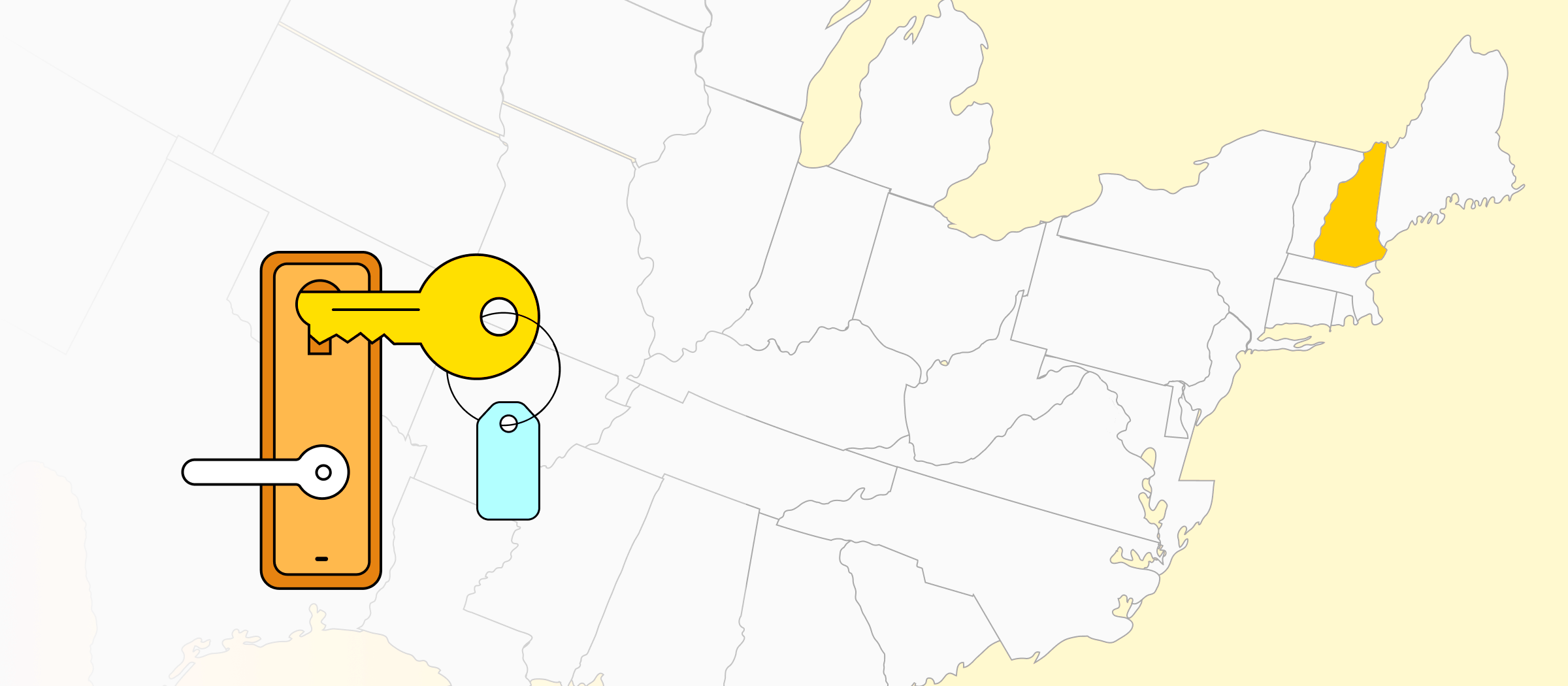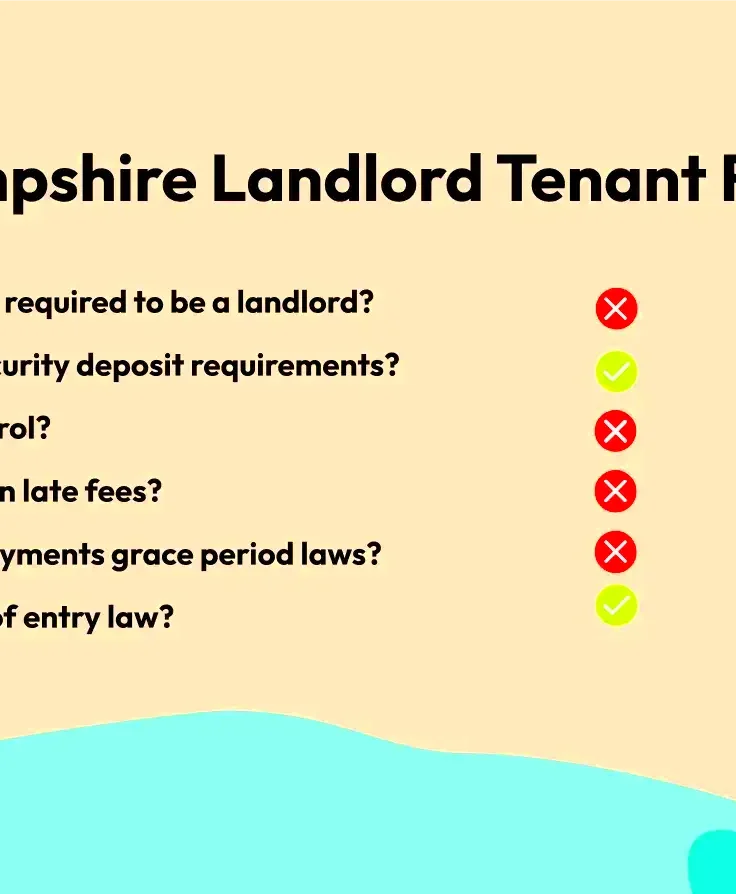Protecting Common Law Property Rights in New Hampshire
Common law property rights are essential in understanding how ownership is recognized and protected in various jurisdictions. In simple terms, these rights define what you own and how you can use your property. In New Hampshire, common law provides a foundation for property rights that can affect individuals and businesses alike. It’s crucial to grasp these rights to ensure that your interests are safeguarded.
Understanding Property Rights in New Hampshire

Property rights in New Hampshire are influenced by both statutory law and common law principles. The state has a rich history of property rights, reflecting its colonial roots. Here are some key aspects:
- Ownership: In New Hampshire, ownership can be classified as either freehold or leasehold. Freehold means owning the property outright, while leasehold refers to renting it.
- Title: Property ownership is often proven through title, which is a legal document establishing who owns the property.
- Land Use: Property rights also encompass land use, determining how you can use your property, including zoning laws.
The state’s property laws are designed to protect owners and ensure fair dealings. Understanding these rights is vital for anyone looking to buy, sell, or manage property in New Hampshire.
Types of Common Law Property Rights
Common law recognizes several types of property rights, each with distinct characteristics. Here’s a closer look:
| Type of Property Right | Description |
|---|---|
| Real Property Rights | These rights pertain to land and anything attached to it, like buildings and trees. |
| Personal Property Rights | These include rights to movable items, such as vehicles, furniture, and equipment. |
| Intellectual Property Rights | These rights protect creations of the mind, such as inventions, designs, and brands. |
| Water Rights | These involve the rights to use water from a river, lake, or other bodies of water on one’s property. |
Each type of property right comes with its own set of rules and protections under the law. Understanding these types is essential for asserting your rights and avoiding potential disputes.
Legal Framework Supporting Property Rights
The legal framework that supports property rights in New Hampshire is a mix of common law principles and statutory laws. This framework is essential for defining, protecting, and enforcing property rights. Understanding this legal landscape is crucial for property owners. Here are some key components:
- State Constitution: The New Hampshire Constitution provides fundamental protections for property rights, ensuring that individuals can own and use property without unreasonable interference.
- Statutory Laws: Various laws govern property transactions, including the New Hampshire Revised Statutes Annotated (RSA), which outlines procedures for buying and selling real estate.
- Common Law: Many property rights are derived from historical legal precedents, which establish rights based on court decisions over time.
- Land Use Regulations: Local zoning laws and ordinances guide how land can be developed and used, balancing individual property rights with community interests.
This legal framework works together to ensure that property rights are respected and that disputes can be resolved fairly. It provides a structure for both owners and prospective buyers to navigate property laws effectively.
Challenges to Common Law Property Rights
While property rights are well established, various challenges can threaten them. Understanding these challenges can help you better protect your rights. Some common issues include:
- Government Regulations: Zoning laws and land use regulations can limit how property owners use their land, potentially infringing on their rights.
- Disputes with Neighbors: Conflicts over property boundaries, easements, and shared resources can lead to legal battles that may threaten your rights.
- Environmental Concerns: Regulations aimed at protecting the environment can restrict property use, particularly for landowners near protected areas.
- Foreclosure Risks: Failure to meet mortgage obligations can result in foreclosure, stripping individuals of their property rights.
Addressing these challenges requires vigilance and often the assistance of legal professionals. Being proactive can help ensure that your property rights remain intact.
Steps to Protect Your Property Rights
Protecting your property rights in New Hampshire is crucial for safeguarding your investments. Here are some practical steps you can take:
- Understand Your Rights: Familiarize yourself with your property rights under state law and common law to know what you can and cannot do.
- Maintain Clear Boundaries: Having a professional survey your property can help avoid disputes with neighbors regarding property lines.
- Stay Informed About Local Laws: Regularly check local zoning laws and ordinances to ensure your property use remains compliant.
- Keep Documentation: Maintain records of property transactions, surveys, and any communications related to property disputes.
- Consult Legal Professionals: If you face any challenges, consult an attorney experienced in property law for guidance and representation.
By taking these proactive measures, you can help protect your property rights and ensure that you enjoy the full benefits of your ownership.
Role of Legal Professionals in Property Rights Protection
Legal professionals play a vital role in protecting property rights. Whether you’re a homeowner, a landlord, or a business owner, having a good attorney can make a significant difference. Here’s how they can assist you:
- Legal Advice: Lawyers provide guidance on property laws and regulations, helping you understand your rights and obligations.
- Contract Review: When buying or selling property, legal professionals can review contracts to ensure they are fair and comply with state laws.
- Dispute Resolution: If conflicts arise, attorneys can help mediate disputes with neighbors or other parties, seeking to resolve issues amicably.
- Litigation Support: In cases where legal action is necessary, attorneys represent clients in court, advocating for their rights effectively.
- Title Searches: Lawyers can conduct title searches to ensure there are no claims or liens against a property before a sale.
In summary, legal professionals serve as your ally in navigating the complex world of property rights. Their expertise helps safeguard your interests and ensure that your rights are respected.
Frequently Asked Questions about Property Rights
Many people have questions regarding property rights, especially in a state like New Hampshire. Here are some common queries and their answers:
| Question | Answer |
|---|---|
| What are property rights? | Property rights are legal rights to possess, use, and dispose of property, including land and personal belongings. |
| Do I need a lawyer for property transactions? | While it’s not mandatory, having a lawyer is highly recommended to navigate the complexities of property law. |
| What if my neighbor encroaches on my property? | You can discuss the issue with your neighbor or seek legal advice if necessary to resolve the dispute. |
| How can I protect my property from foreclosure? | Make timely payments, communicate with your lender if you’re facing issues, and seek legal counsel early. |
These FAQs help clarify common concerns and reinforce the importance of understanding your property rights in New Hampshire.
Conclusion on Protecting Common Law Property Rights
Protecting common law property rights is essential for every property owner in New Hampshire. With a solid understanding of your rights, the legal framework supporting them, and the role of legal professionals, you can navigate potential challenges with confidence. Remember, proactive measures such as staying informed about local laws, maintaining clear property boundaries, and seeking legal advice when necessary are key to safeguarding your interests.
By prioritizing the protection of your property rights, you not only secure your investments but also contribute to a fair and just community where everyone’s rights are respected. Don’t hesitate to reach out to legal professionals if you have any concerns or questions regarding your property rights.


